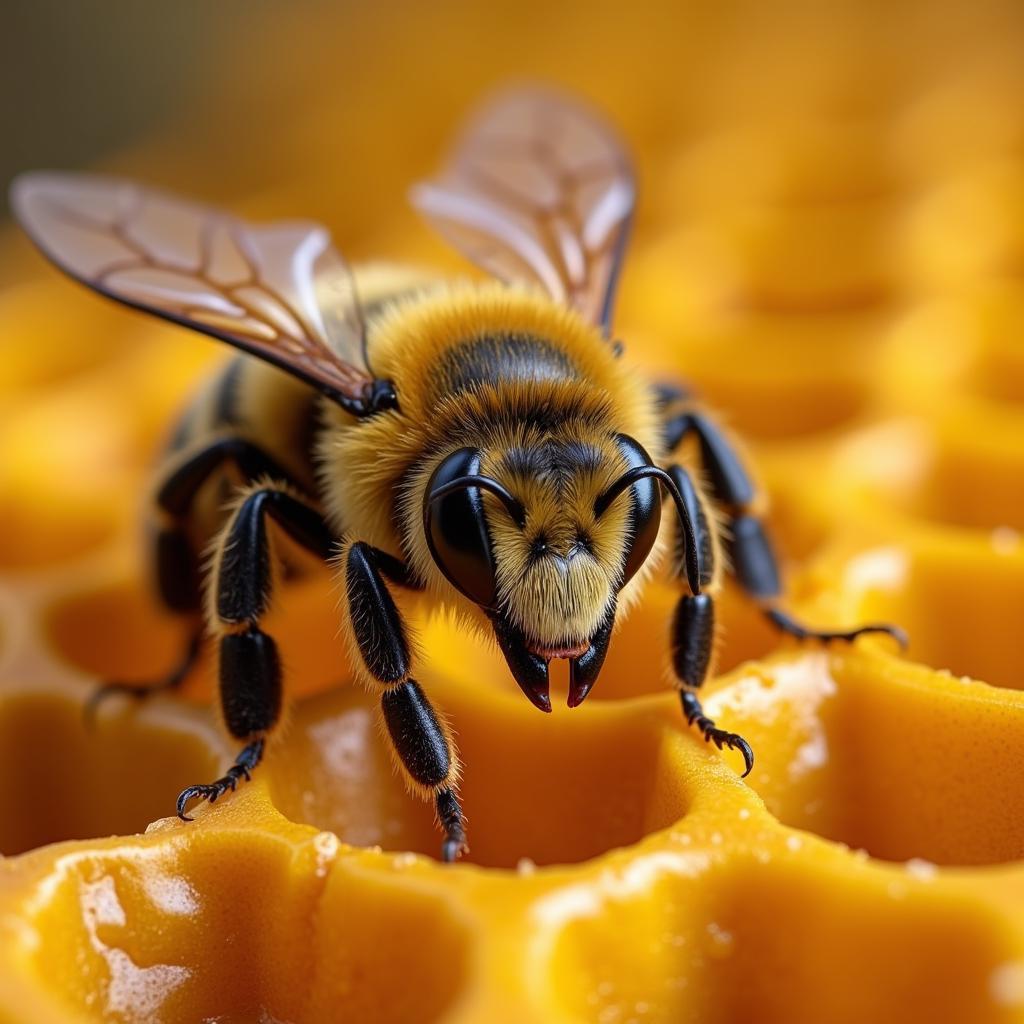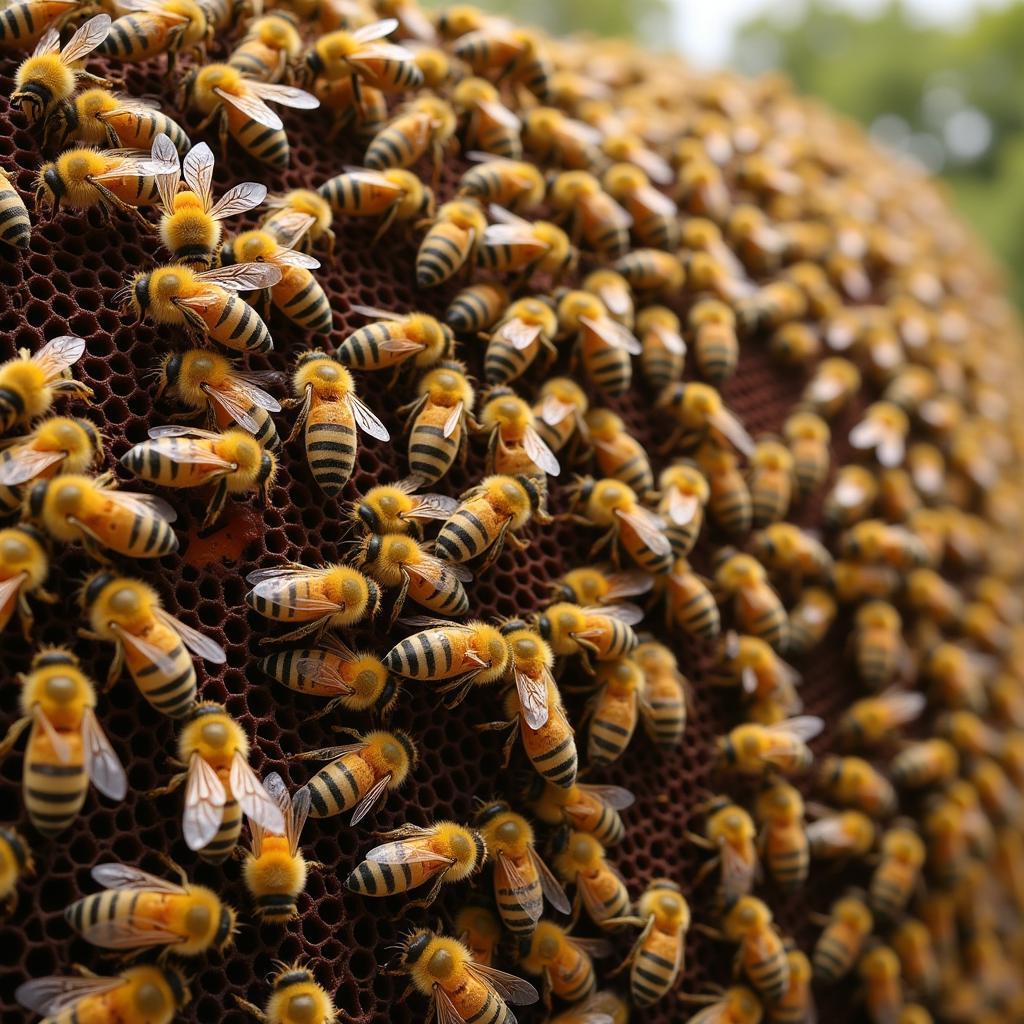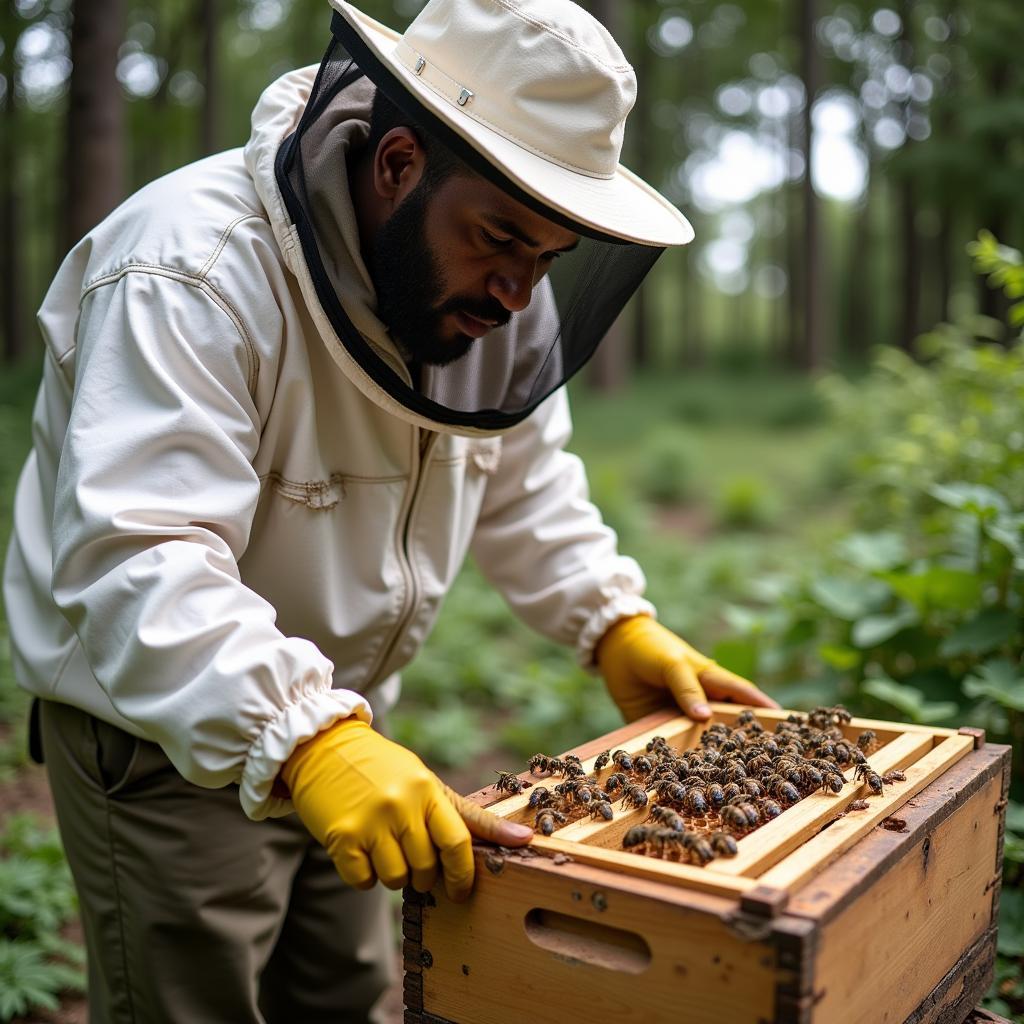African Honey Bee Classification
African honey bees, often called “killer bees,” are fascinating creatures with a complex classification. Understanding their taxonomy helps us appreciate their unique characteristics and ecological importance.
 African honey bee on honeycomb
African honey bee on honeycomb
Delving into the Taxonomy of African Honey Bees
African honey bees belong to the species Apis mellifera, which encompasses various honey bee subspecies. The term “African honey bee” doesn’t refer to a single, distinct species but rather to a group of subspecies originating from Africa. These bees are known for their adaptability and resilience, thriving in diverse environments across the continent.
Key Subspecies and Their Traits
Several key subspecies fall under the African honey bee umbrella:
- Apis mellifera scutellata (East African lowland honey bee): Known for its defensive nature and tendency to swarm. This subspecies significantly contributed to the Africanized bee population in the Americas.
- Apis mellifera monticola (East African mountain honey bee): Found in higher altitude regions, this subspecies exhibits a gentler temperament compared to A. m. scutellata.
- Apis mellifera capensis (Cape honey bee): Endemic to South Africa, this subspecies displays unique reproductive capabilities, including thelytoky, allowing worker bees to lay diploid female eggs.
 Africanized honey bee swarm
Africanized honey bee swarm
The “Killer Bee” Misconception
The term “killer bee” is a misnomer often associated with African honey bees, particularly A. m. scutellata. While these bees are indeed more defensive than their European counterparts, their aggressive reputation is often exaggerated. Understanding the reasons behind their defensiveness is crucial:
- Evolutionary Adaptation: Their defensive behavior is an adaptation to protect their hives from predators and environmental challenges prevalent in their native habitats.
- Resource Defense: African honey bees are highly protective of their honey reserves, a vital resource in their often-harsh environments.
The Significance of African Honey Bees
Despite the negative connotations, African honey bees play a vital role in their ecosystems:
- Pollination Powerhouse: Like other honey bee subspecies, they are crucial pollinators, contributing significantly to the biodiversity and productivity of African flora.
- Honey Production: Their honey, a valuable food source for both humans and animals, forms an integral part of local economies and traditions.
Conservation Efforts and Future Research
Protecting African honey bee populations is crucial for maintaining ecological balance. Ongoing research focuses on:
- Genetic Diversity: Understanding the genetic makeup of different African honey bee subspecies is essential for conservation efforts and breeding programs.
- Disease Resistance: Investigating their resistance to diseases and parasites can provide insights for safeguarding other honey bee populations globally.
 Beekeeper inspecting an African honey bee hive
Beekeeper inspecting an African honey bee hive
Conclusion
African Honey Bee Classification remains a complex and evolving field. By appreciating their diversity, ecological importance, and the factors influencing their behavior, we can move beyond the “killer bee” myth and recognize these remarkable creatures as vital contributors to the African landscape.

